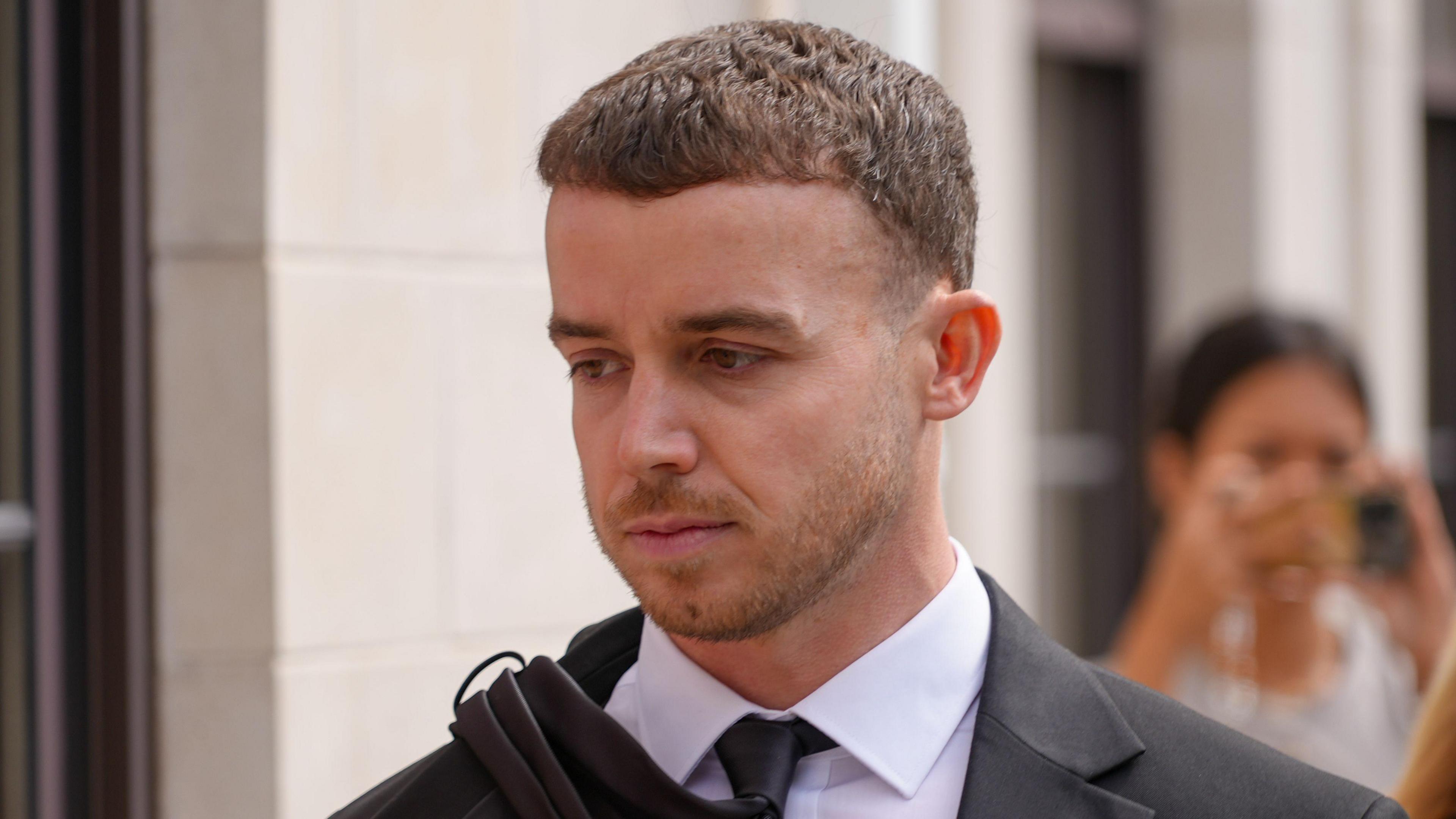'Catastrophic failings' led to boat crash - expert
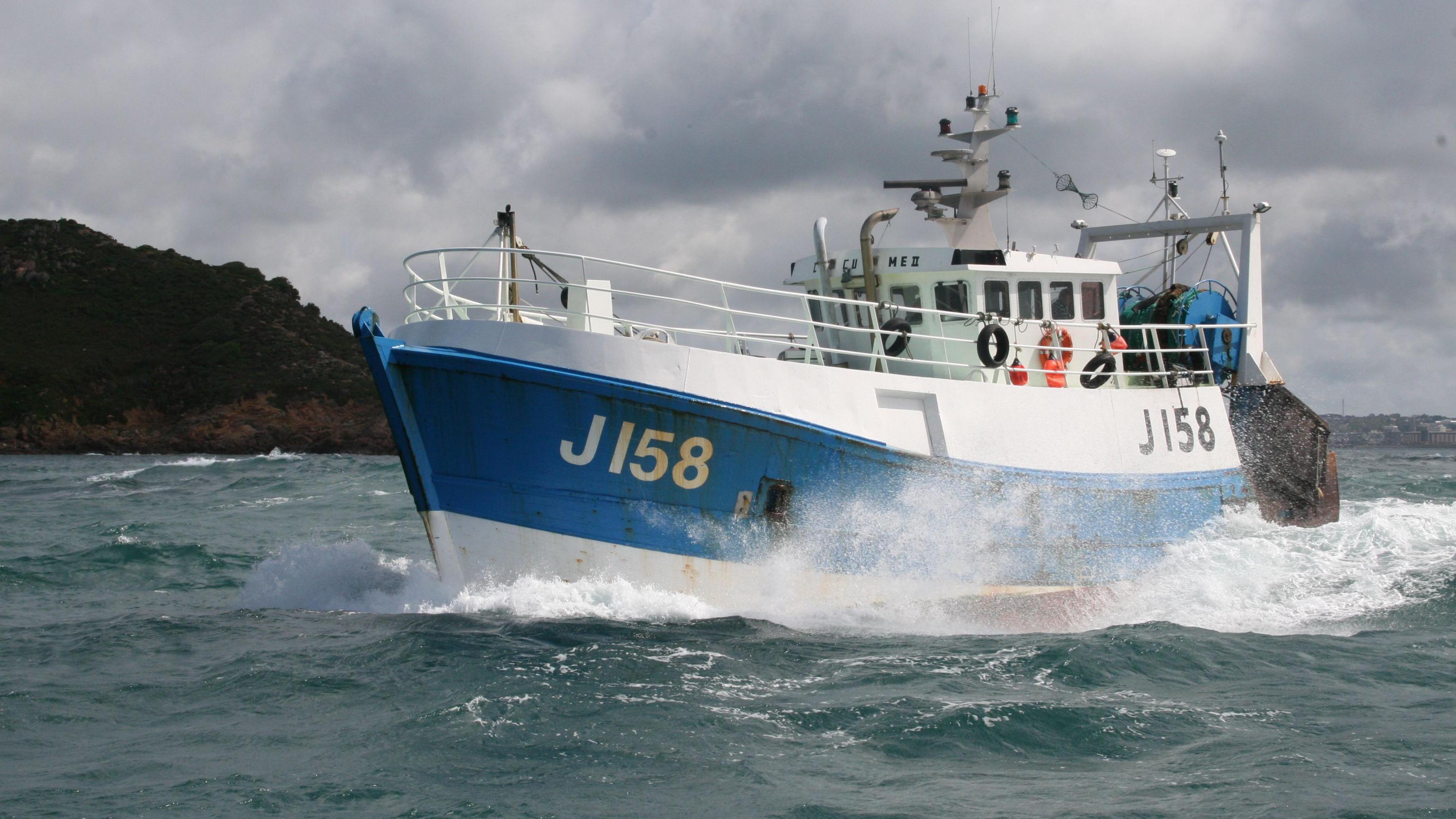
L'Ecume II sank after a collision with the Commodore Goodwill in December 2022
- Published
A maritime expert has told a court how "catastrophic failings" by the officer in charge of a Condor ferry "certainly" caused its collision with a Jersey fishing boat, killing three crew onboard.
Michael Michieli, Larry Simyunn and Jervis Baligat died in the collision involving L'Ecume II and the Condor Ferries vessel Commodore Goodwill in December 2022.
Second officer Lewis Peter Carr and lookout Artur-Sevash Zade deny three counts of gross negligence manslaughter after the deaths of the three men.
Capt Brian McJury told Jersey's Royal Court that by undertaking "housekeeping and administrative tasks", the officer of the watch Mr Carr did not prioritise his tasks correctly in the lead up to the collision.
He said in evidence provided by the Crown prosecution in the lead up to the collision onboard the Goodwill that he "didn't hear any communication" which "isn't what I expect from a bridge team".
"The exchange of information spreads the knowledge across two people... you'd expect then the risk to be identified... and some action to be taken," he added.
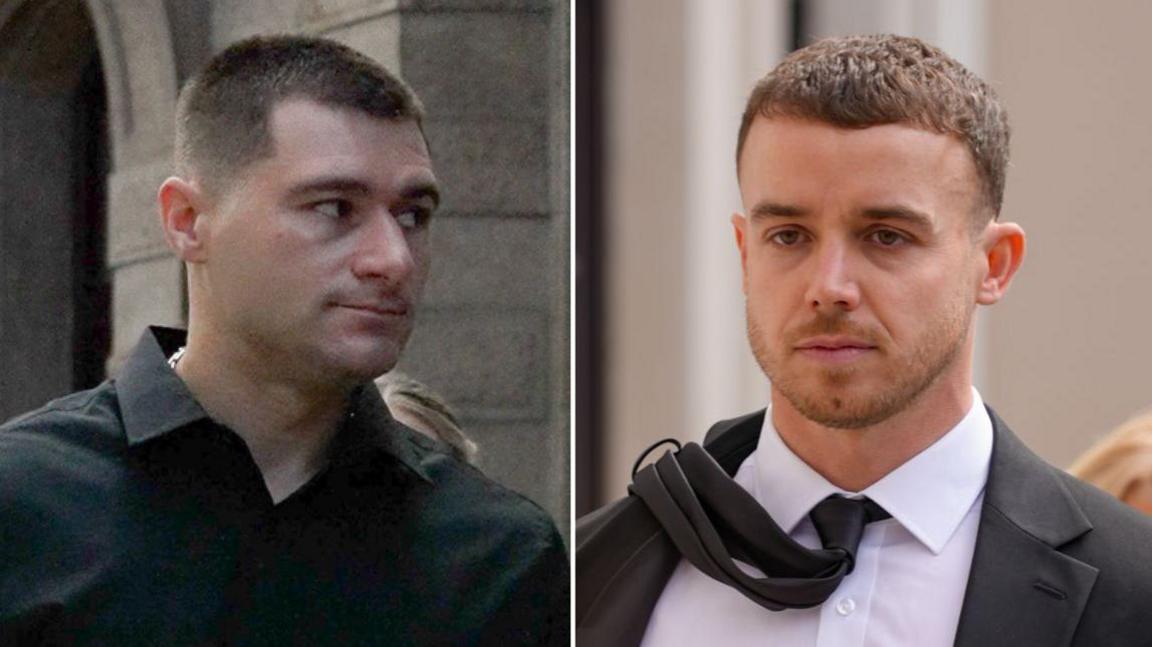
Artur Sevash-Zade and Lewis Carr deny the charges against them
The court heard on Wednesday that Mr Carr kept the ferry going at "full speed", which Capt McJury said was "never safe" for passing a fishing vessel in close proximity.
He also said Mr Carr's alterations to the ship's course before the collision were not appropriate: "They were simply too small and insufficient."
Capt McJury said after collision he would have expected Mr Carr to "raise the alarm both onboard their own vessel and to start thinking about assembling assistance from outside".
The expert said there was no standard of care from Mr Carr and that "had action been taken to avoid a collision, no one would be sitting here".
He said the collision "was certainly caused by those failings".
Regarding Mr Sevash-Zade, Capt McJury said he did not report vessels detected by vision or radar and he did not verbalise any concerns.
He said: "Had the lookout alerted the officer at an early stage I expect the officer would've avoided collision.
"I believe had he highlighted to officer of the watch... the collision wouldn't have occurred."
'Sound a signal'
Capt McJury said he would have expected L'Ecume II "to take action by itself to avoid the collision".
He told the court that considering the fishing vessel as the stand-on vessel, which should be given way by the other oncoming vessel, he would have expected L'Ecume II to take its own action.
He said "long before" the collision he would have expected "L'Ecume to have sounded a signal... supplemented by a light" and take its own avoiding action.
The Crown prosecution showed the court radar images at 05:34 GMT - one minute before the collision - that showed the fishing vessel altered to port.
When asked why this happened, Capt McJury said his answer would be "more speculation than accuracy".
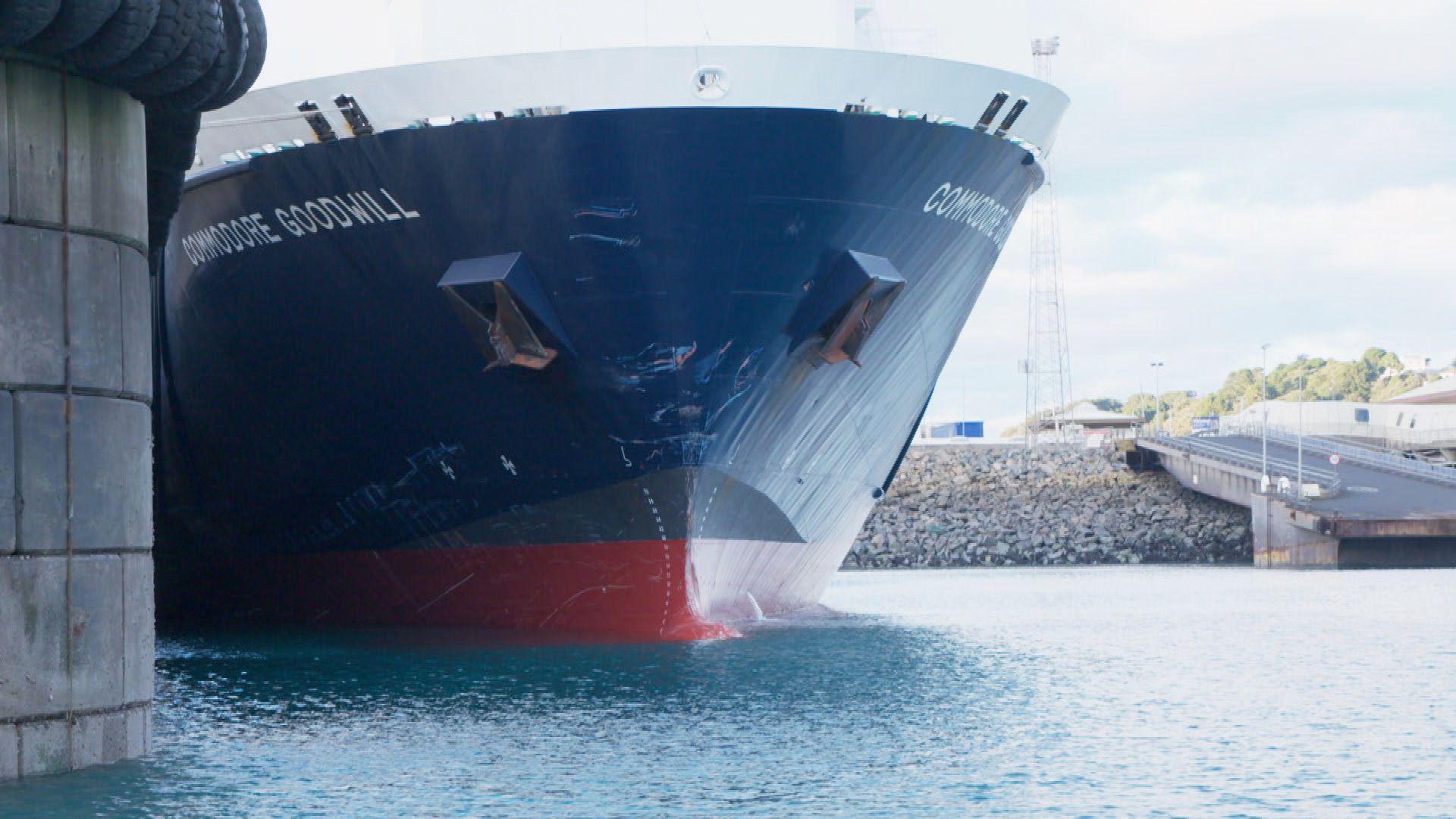
The Commodore Goodwill suffered damage to its hull
At 05:24 BST, Mr Carr made a seven degree alteration to his course and then L'Ecume II became visible on the Goodwill's automatic identification system, the jury heard.
When asked by prosecution if the Goodwill could have made a larger alteration, Capt McJury said there was "plenty of space around the vessel and at this point plenty of time to make alterations".
At 05:34 BST Mr Carr called the captain to give him a 10-minute alert before the end of sea passage. Capt McJury said the "only phone call expected to be made at this time" should have been to the captain to come to the bridge as there was "clear collision risk" unfolding.
The jury also heard that Mr Carr could have been tracking the boat on the ship's radar 20 minutes before the crash.
Capt McJury told the court that radar tracking was one of the "most reliable" ways of avoiding a collision.
Evidence showed the Goodwill's automatic radar plotting aid did not track L'Ecume II at any point.
On Tuesday, Capt McJury said any vessel heading towards another vessel with its fishing lights on - whether being displayed correctly or not - would automatically become the give-way vessel.
During the trial the court has heard Mr Michieli would keep his fishing lights on even during passage as he worried about bigger boats getting too close.
Capt McJury said "you must apply the collision regulations" and could not decide whether or not another vessel was displaying the wrong lights.
He added that to avoid collision, the give-way vessel needed to make a "nice and big" alteration as opposed to a smaller one so the other vessel "isn't left with any doubt" that is has been spotted it and that it will give way.
The trial continues.
Follow BBC Jersey on X, external and Facebook, external. Send your story ideas to channel.islands@bbc.co.uk, external.
- Published9 September
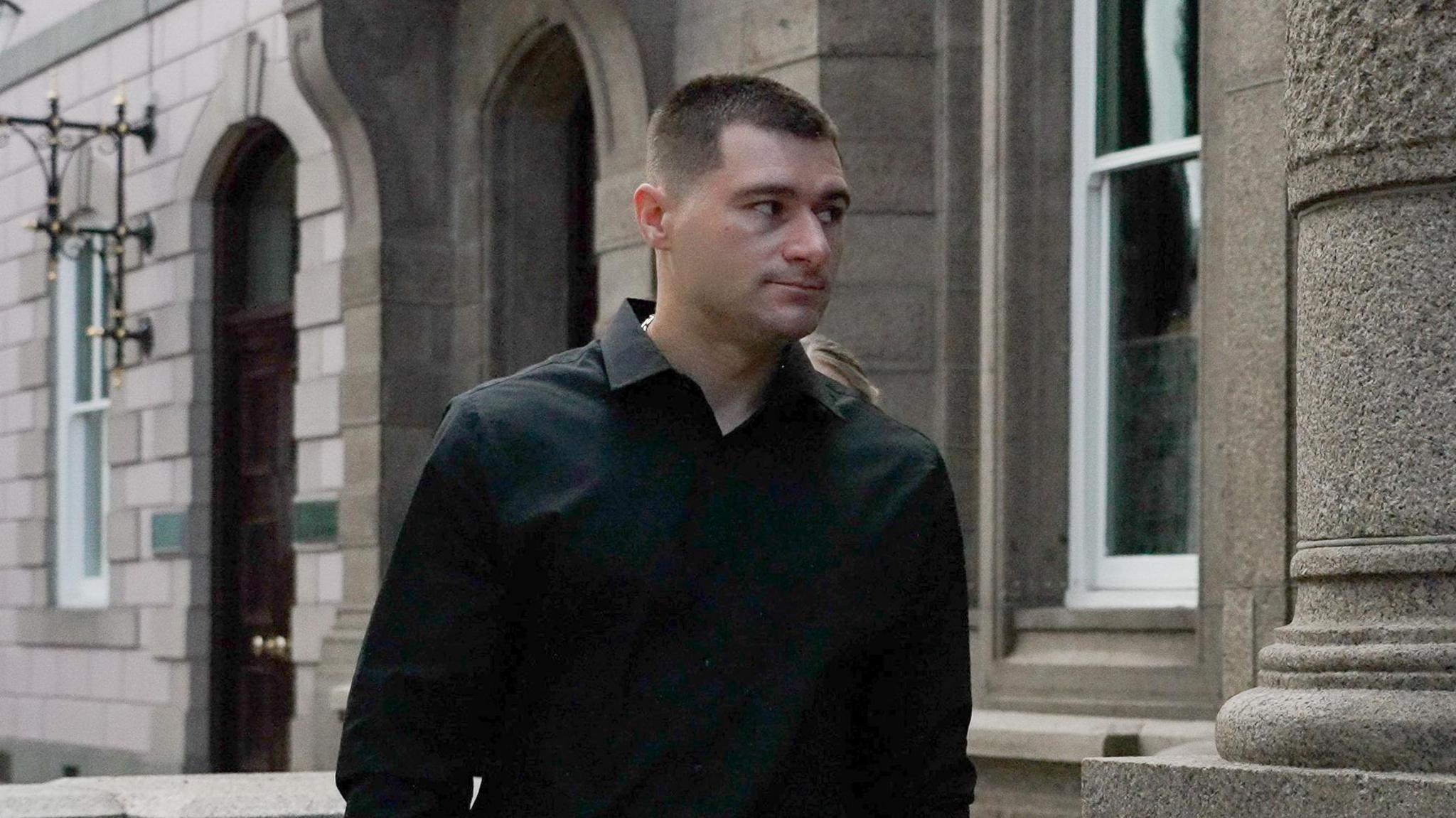
- Published8 September
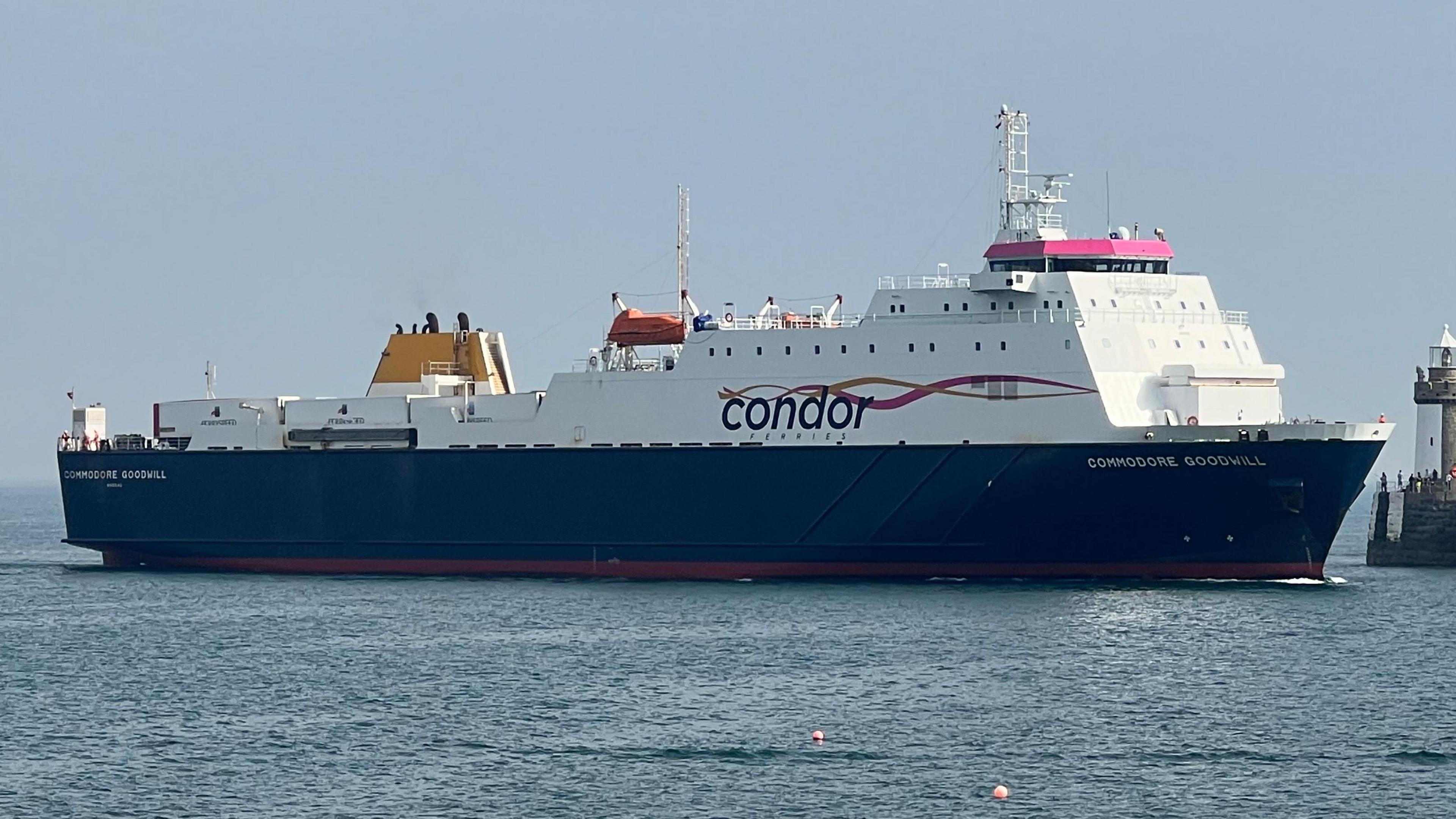
- Published5 September
